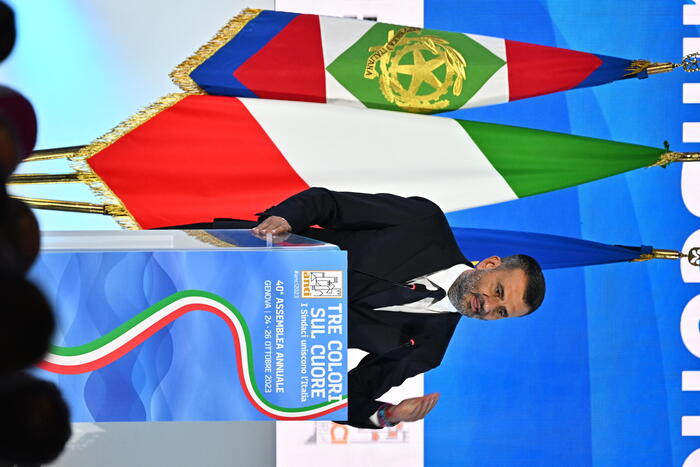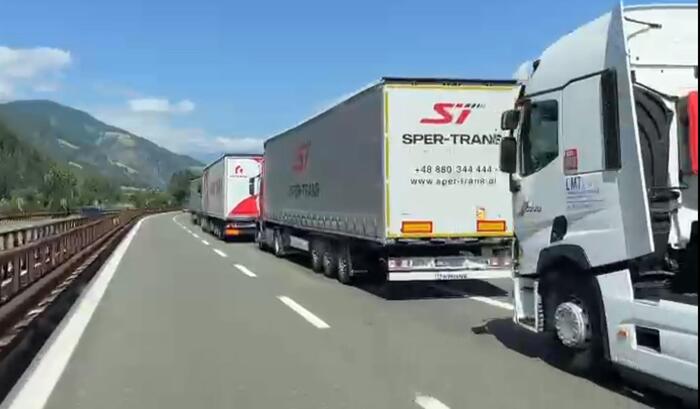There was a time, not too long ago, when each country took its place in the world economy.
China and Germany had large external surpluses of manufacturing production.
The United States used its exorbitant privilege to absorb these surpluses.
Russia was the reliable supplier, or so we thought, of oil and gas.
I wouldn't call it a stable deal, but it did experience a period of pseudo-stability from the 1990s until the pandemic.
What has changed with Brexit, the pandemic and the war in Ukraine is that the model has broken, and curiously, for everyone.
In the case of the United Kingdom, this is more than evident.
The disorder in British politics is the consequence of what happens when you vote for Brexit but against an economic model to make it work.
The German model consisted of domestic wage repression, cheap energy from Russia, technical specialization, and integration into global supply chains.
Regardless of how the war in Ukraine ends, Russia will need a new model because it will never sell the same volumes of energy to Western Europe again.
China is discovering that its large volumes of dollar and euro reserves have made it politically dependent on the US and the EU.
The United States, too, needs a new economic model.
The exorbitant privilege will disappear over time precisely because the United States is treating foreign reserve holdings as a sanctionable commodity.
In the future there will be a price to pay.
The US economy will have to rely less on imports from the rest of the world, produce more at home, and perhaps expand the North American Free Trade Agreement (NAFTA) geographically and make it a very large market. integrated, as the Europeans did.
But the time when the United States acted as a shock absorber for the world economy is coming to an end.
So everyone needs a new economic model.
This is not about macroeconomic policy.
It's about what you specialize in as a country.
The Germans bought gas and basic products, and sold machinery.
The UK was the largest English-language port of entry to the single market.
The Chinese imposed financial repression to finance an investment boom.
What will these new business models consist of?
What is already clear is that they will all be subject to supply chain security.
We no longer want to depend on each other.
President Xi Jinping has mandated that all critical supply chains have to be domestic.
In Europe, the reference region is the EU plus its closest trading partners.
For the United States, surely it should be all of America, North and South.
We are not entering an era of deglobalization, but rather an era of global trading blocs.
Germany is a particularly interesting case.
It is clear that the German model no longer works.
Olaf Scholz is currently engaged in the futile attempt to replace the broken friendship with Russia with a new strategic alliance with China.
Basically, I'm cool because there's no chance this will work, although Scholz's neo-mercantilism could lead to a lot of collateral damage.
I expect the US government, which has just imposed a ban on high-tech semiconductors on China, will put up a big fight.
Germany depends on the United States for its security and on the EU as the main destination for its exports.
Germany cannot act simultaneously against the security interests of the EU and the United States in pursuit of its neo-mercantilist national objectives.
The other reason why I am basically calm is that the era of wage repression and cheap energy costs is coming to an end.
The model no longer makes economic sense.
Scholz is wasting precious time pushing the old model, when he should be thinking of a new one.
Germany has innate strengths that it could exploit in the new world.
It has some of the best engineers in the world.
It is also a leading force in pharmaceutical research.
The share of the manufacturing sector in GDP is very likely to decline as many medium-sized companies are barely profitable.
The energy price crisis will push those companies to the limit.
Demand for gasoline and diesel engines will almost certainly fall, as will demand for components for these engines.
Germany will produce less.
But there is a lot of high-margin, high-precision machinery that will continue to be produced in Germany.
There is a reason why the Ukrainians are so interested in German tanks.
Changing the economic model will be extraordinarily difficult for everyone.
It requires technical work and preparation, and a degree of clarity in national political debates that in most cases does not exist.
To change an economic model as a whole, you have to know what you are doing.
A good example of how not to do this was the birth of modern Russia, which tried to transform communism into an ultra-capitalist model and led to a kleptocracy and a general breakdown of democracy.
Successful examples of radical model changes are Japan and Germany after World War II.
But it took a catastrophic event to trigger the change.
As bad as our opinion of Brexit is, we can probably agree that it is not of the same magnitude.
So all of this will take a while.
I guess not all countries will get it.
I have a feeling that the US will do better than anyone else, that the UK will return to the EU single market and that Russia will become a satellite of China.
That leaves China and Germany.
The future of the Eurasian continent will largely depend on how these two countries adapt.
Wolfgang Münchau
is director of Eurointelligence.
Translation of News Clips.
Subscribe to continue reading
read without limits
Keep reading
I'm already a subscriber

/cloudfront-eu-central-1.images.arcpublishing.com/prisa/EQ53WSRQKTXIDGUWUGMBYLJOLE.jpg)










/cloudfront-eu-central-1.images.arcpublishing.com/prisa/KMEYMJKESBAZBE4MRBAM4TGHIQ.jpg)

